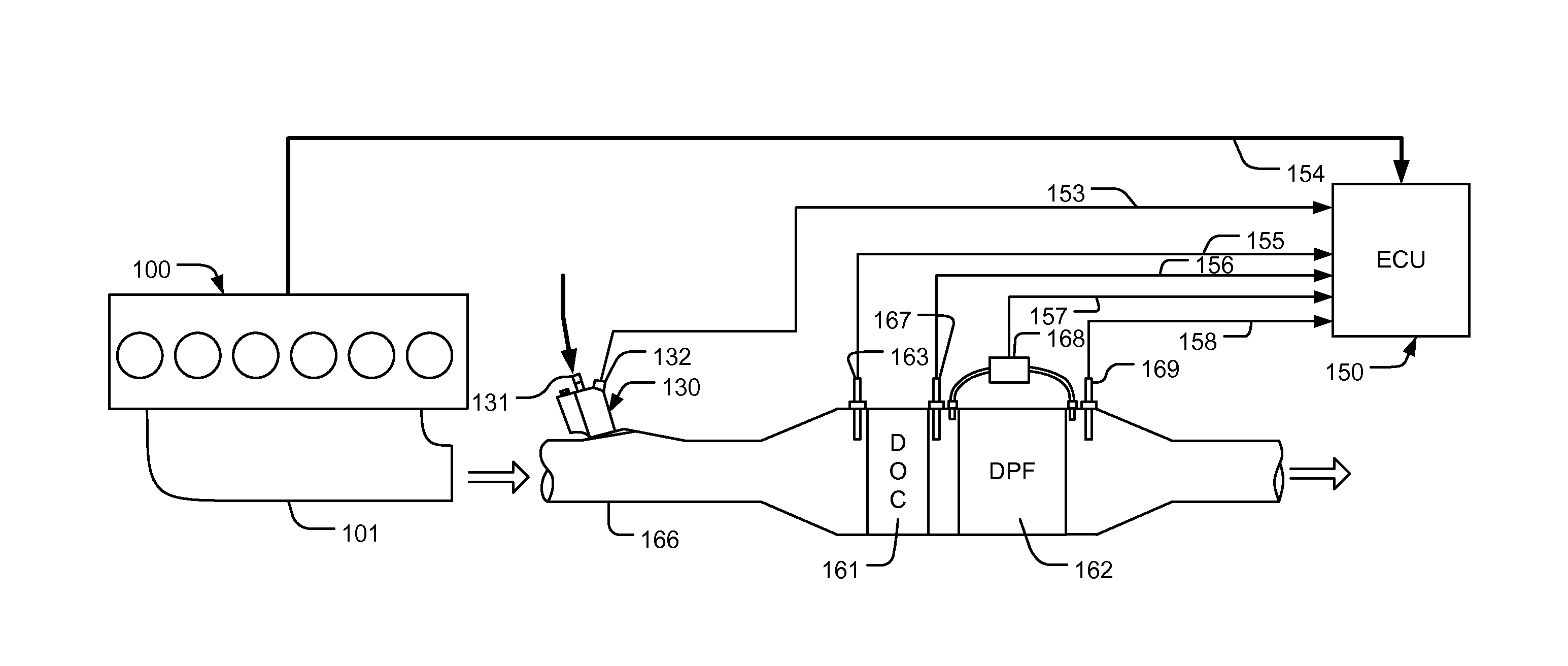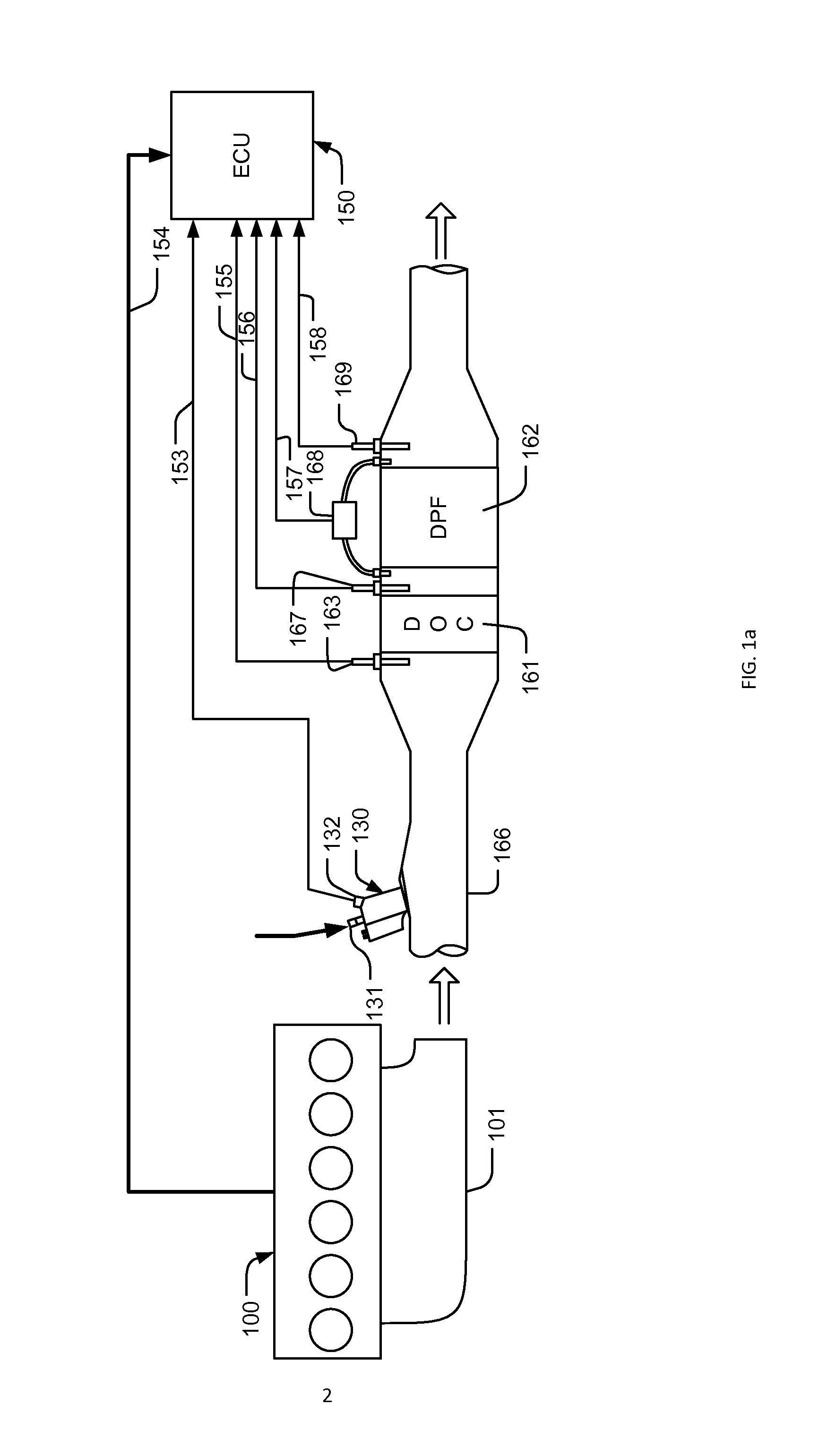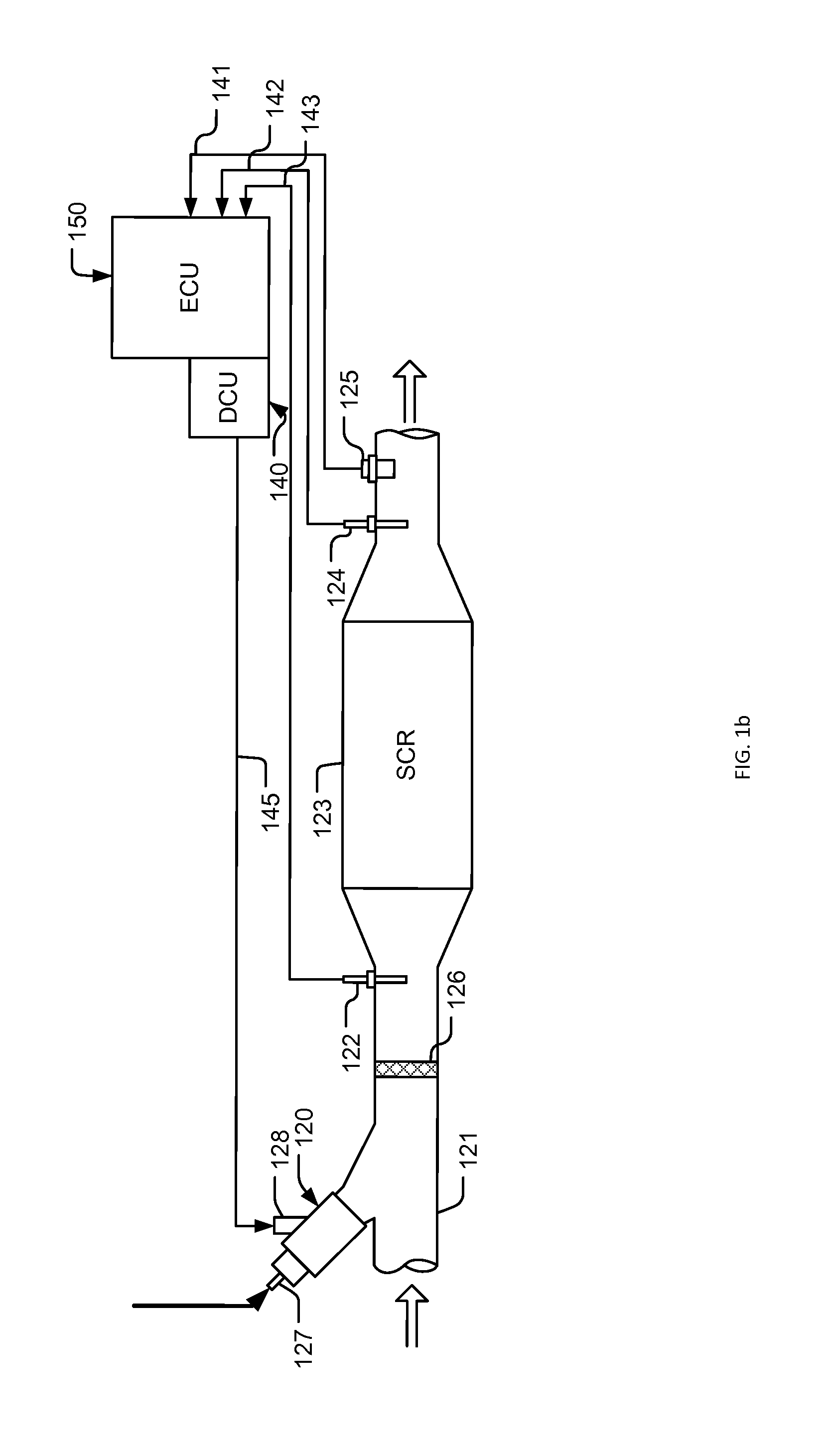Low Pressure Atomizing Injector
a low-pressure atomizing and injector technology, applied in the direction of engines, mechanical equipment, machines/engines, etc., can solve the problems of low injection pressure, limited injection pressure, and sensitive working fluid atomization in exhaust gas processing systems, so as to improve atomization performance and accurately measure injection pressure. , the effect of high flow velocity
- Summary
- Abstract
- Description
- Claims
- Application Information
AI Technical Summary
Benefits of technology
Problems solved by technology
Method used
Image
Examples
Embodiment Construction
[0026]Referring to FIG. 1a, in a diesel engine DPF system, an engine 100 with its exhaust manifold fluidly coupled to an exhaust passage 166, which is then fluidly connected to a catalyst package having a DOC 161 and a DPF 162 contained. A fuel injection device 130 with an injector 131 enclosed in an adaptor, which may have coolant cycling inside for carrying heat away, is used for providing fuel in regenerating the DPF, when the PM (Particulate Matter) collected therein is above a certain level. The injector 131 is controlled by an ECU (Engine Control Unit) 150 through signal lines 153 connected to a connection port 132, while sensing signals are obtained from the engine 100 by the ECU 150 through signal lines 154. Upstream from the DOC 161, a temperature sensor 163, which is electrically connected to the ECU 150 through signal lines 155, is used for measuring exhaust gas temperature at the inlet of the DOC 161, and temperature sensing signals obtained from two temperature sensors ...
PUM
 Login to View More
Login to View More Abstract
Description
Claims
Application Information
 Login to View More
Login to View More - R&D
- Intellectual Property
- Life Sciences
- Materials
- Tech Scout
- Unparalleled Data Quality
- Higher Quality Content
- 60% Fewer Hallucinations
Browse by: Latest US Patents, China's latest patents, Technical Efficacy Thesaurus, Application Domain, Technology Topic, Popular Technical Reports.
© 2025 PatSnap. All rights reserved.Legal|Privacy policy|Modern Slavery Act Transparency Statement|Sitemap|About US| Contact US: help@patsnap.com



